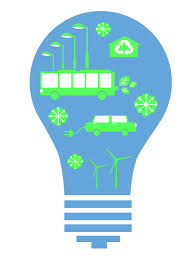Smart cities, also called digital city, intelligent city and cyberville, are cities that use technology to improve the quality of services, decrease costs, reduce the consumption of resources and engage more actively with its people. It further extends to sustainable and advanced functions of water, electricity, health care and energy facilities. Smart cities use information and communications technology (ICT) to not only maintain, but also enhance and manage urban inflow and allow quick and efficient responses to challenges. There are several sectors that have invested in ‘smart city’ technology, for example, government, health care, energy, waste, water and electricity.
There has been a rapid increase in investment in smart cities. This is primarily a consequence of changes in economic and environmental conditions coupled with the growth of the technology sector. The introduction of e-commerce and entertainment, a quickly ageing population and increasing burden on public finances has also caused a sudden peak in the interest in smart cities and information and communications technology.
According to economists Deakin and Al Waer smart cities can be defines as cities which have the following properties:-
- Implementation of a wide variety of digital technologies for betterment of communities and cities
- The use to information and communication technology (ICT) to transform life within the region
- The use of ICT by government systems
- The use of ICT to bring people together enhancing their quality of life and the services provided to them
Countries and international organisations are investing heavily in smart cities. The European Union has constantly worked towards achieving the goal of ‘smart’ urban growth in cities. It has also formulated an agendum, Europe’s Digital Agenda, wherein it primarily focuses on improving and solidifying innovation and ICT to be used for public services.
The primary aim of establishing smart cities is to improve the physical infrastructure like roads and highways, along with the improvement and digitalisation of governance. Smart cities have been invested in with the intention of improving the quality of every citizen’s life. All smart cities will run on technology that is an amalgamation of human intelligence, artificial intelligence and collective intelligence.
Click here for government certification in Information Technology





18 Comments. Leave new
This is the perfect creation using both the human brain and technology.
nice one
nice information
very good article
good topic and well written
Amazingly presented. Well explained. Good job 🙂
Well presented .
Very well articulated!
got something different to read today!! good
Well written!
The heading says it all☺
Nice perspective to see it 🙂
I liked the article but it’ll good if you give example of some smart cities too.
Rupika, the government has just announced a project called “100 Smart Cities” which include 24 state capitals.
Example: Pune, Nagpur, Port Blair etc
Go to the link to know the cities: http://www.indiatvnews.com/news/india/know-all-100-upcoming-smart-cities-of-india-50276.html
Nice article 🙂
explained in a smart way!
Great work!
liked it
A very good topic chosen
In a way the heavy investment n the development of the smart cities will lead to the advancement of the towns n cities which are not that developed in our country